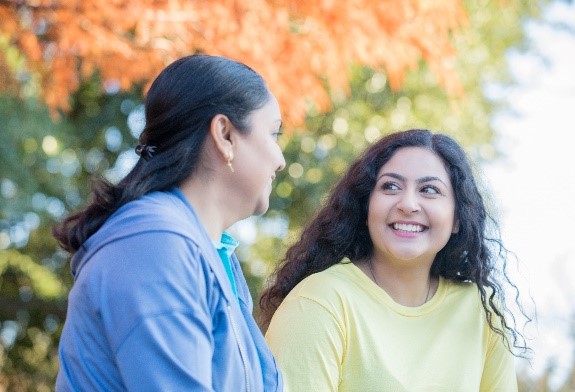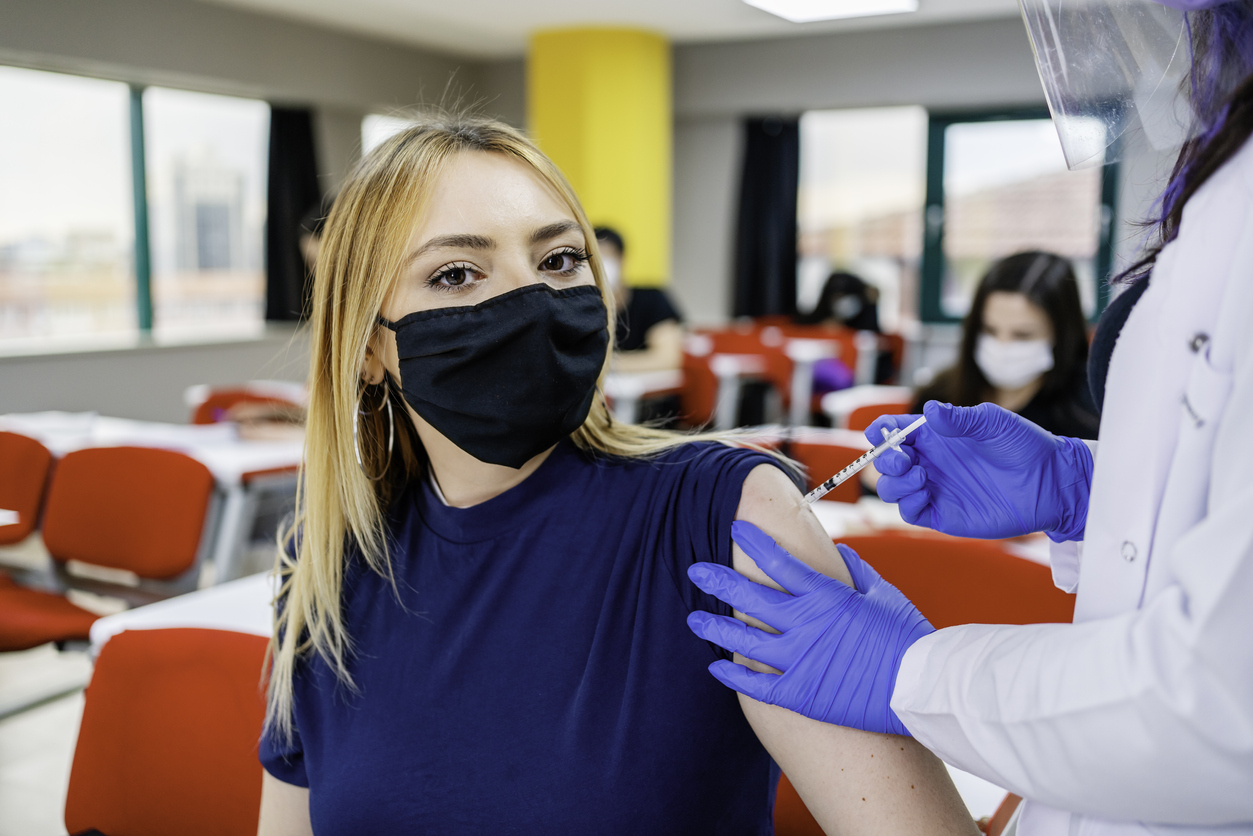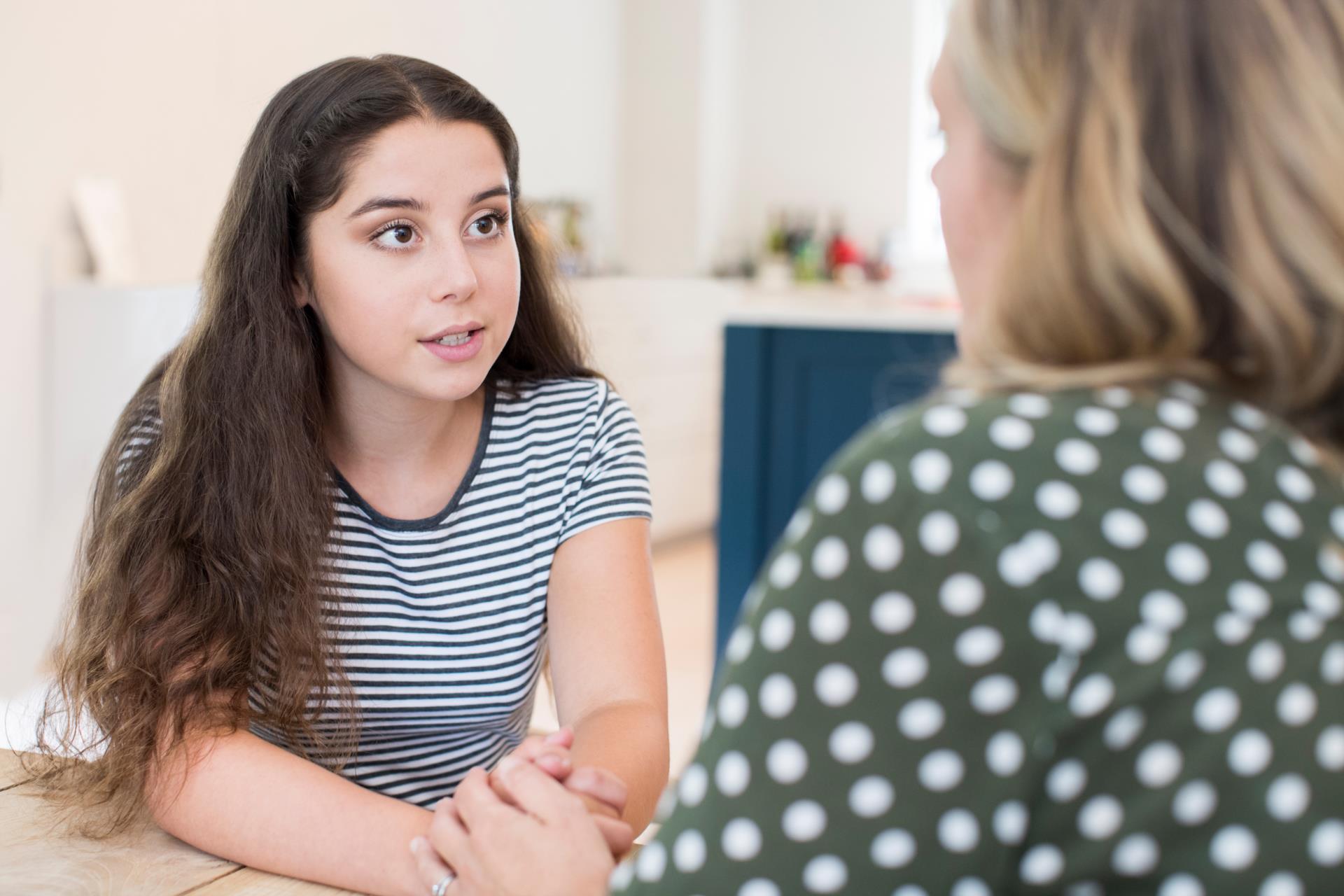12 to 18 Years.png)
On this page:
Nutrition for 12 to 18 Year Olds
Eating well for teens ensures they receive essential nutrients, helps develop their food preparation skills, and promotes life-long positive eating habits. Meals and snacks should follow Canada’s Food Guide, which includes a variety of vegetables and fruit, whole grains, and protein foods. Water is the best drink of choice, and other healthy options are low-fat unsweetened cow’s milk and unsweetened fortified plant-based beverages.
Youth will become more involved with decisions related to their food choices. Offer to include them in grocery shopping, meal planning, or food preparation. Meals and snacks can be made and packed ahead of time to accommodate for busy schedules. As often as possible, try to eat meals together as a family and without electronics. Be aware of food marketing and dieting trends, which often promote unhealthy eating habits.
Visit Healthy Eating for Teens for more information and tips.
Sleep for 12 to 18 year olds
|
Age
|
Recommended # of hours per night
|
|
12-13 years
|
9-11 uninterrupted hours of sleep, with consistent bed and
wake-up times
|
|
14-17 years
|
8-10 uninterrupted hours of sleep, with consistent bed and
wake-up times
|
Source: 24 Hour Movement GuidelineSome tips to help your teen get a good night’s sleep:
- Be a role model and make sleep a priority.
- Talk to your teen about the importance of sleep and encourage them to set a sleep routine.
- Encourage your teen to:
- Set a regular sleep and wake-up time; even on weekends.
- Avoid screen time (television, phone, tablet) at least one hour before bedtime.
- Set up a comfortable sleep environment that is cool, dark, quiet and free of televisions and other screen devices.
- Avoid sugar-sweetened and caffeinated food and drink.
- Be active outside during the day to improve sleep quality and duration.
For more information, visit our page on Sleep.
Physical Activity for 12 to 18 Year Olds
Being active has physical, social, and mental health benefits for youth. Encourage your teen to stay active with their family and friends. Check out these Tips to get youth active (12-17 years).
Youth (12-17 years) should get at least 60 minutes of moderate to vigorous physical activity and several hours of light physical activity each day. Recreational screen time should be limited to less than 2 hours per day.
For those 18 and over, it’s recommended they get at least 150 minutes of moderate to vigorous physical activity per week in addition to several hours of light physical activity. Sedentary time should be limited to 8 hours or less, including limiting recreational screen time to no more than 3 hours. Long periods of time spent sitting should be broken up as often as possible.
Click here for more information and resources!
Mental Health
Youth are going through many changes at this time, which may affect their mental health. While it is common for teens to distance themselves from their family, open, honest, and consistent communication is important. Take time to connect or reconnect with them to strengthen your relationship, this will help support their positive mental health. By talking about mental health openly, you can help your child become a healthy and resilient adult. Having supportive and caring adults in their life helps to develop resiliency and their ability to navigate and bounce back from stressful or challenging situations.
Check out:
Raising resilient children and youth
Tips for building healthy relationships with your teenagers
How to talk with your teen
Visit our Youth Mental Health page for more resources.
Substance Use among 12 to 18 Year Olds
Many youth are curious about substances, or already drink, smoke or use other drugs before the legal age. Early substance use can affect normal brain development that happens during the teen years; the human brain is not fully developed until about 25 years of age. The earlier youth begin to use substances, the more problems they may have later in life.
Parents play a big role in teen’s decision-making.
- Be a positive role model. Practice healthy ways to manage stress and show your child that you can have a good time without using substances.
- Ask your child what they know about alcohol, smoking, vaping, and other drugs.
- Talk about the risks and encourage your teen to delay use until they are older.
- Explore ways to manage peer pressure.
- Discuss how they can lower their risk if they are already using substances.
- Be clear and specific about your expectations and rules around substance use.
Visit our Alcohol and Other Drugs page, Tobacco and Vaping Youth Prevention page, and our Youth & Cannabis section for more information and resources.
Get support when you need it most. The Parent Support Hub from Drug Free Kids Canada offers information and free 24/7 phone and chat support to answer your questions about youth substance use.
Sexual Health for 12 to 18 Year Olds
Visit our Sexual Health Clinic page for more information.
Immunizations for 12 to 18 Year Olds
Visit our Immunization & Infectious Disease page and Immunization for Children at School page for more information.
Positive Parenting for 12-18 Year Olds
Positive parenting is still important for teenagers. Although most teens become more independent from their parents, they benefit from a strong emotional support system and guidance.
For 12 to 18 year olds, this might look like:
- Having honest and open conversations with them
- Discussing any of their concerns
- Praising their efforts and accomplishments
- Spending time together
- Showing interest in their interests
- Encouraging them to make their own decisions and offer support as needed
- Respecting their feelings and opinions
- Setting clear goals and expectations with their input
Source: https://www.cdc.gov/ncbddd/childdevelopment/positiveparenting/index.html
20231110/kg:nd